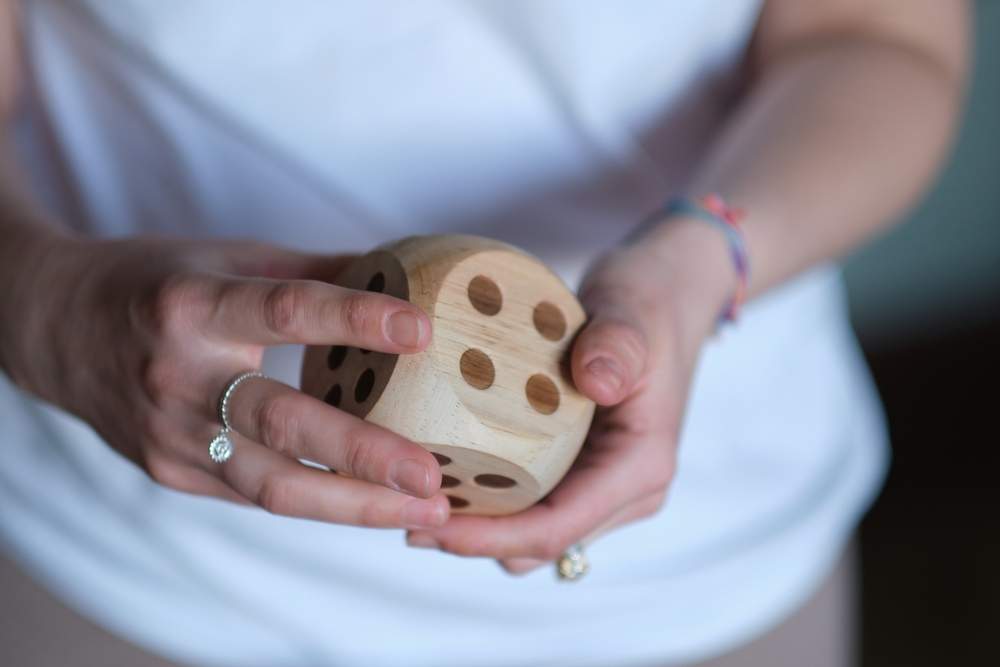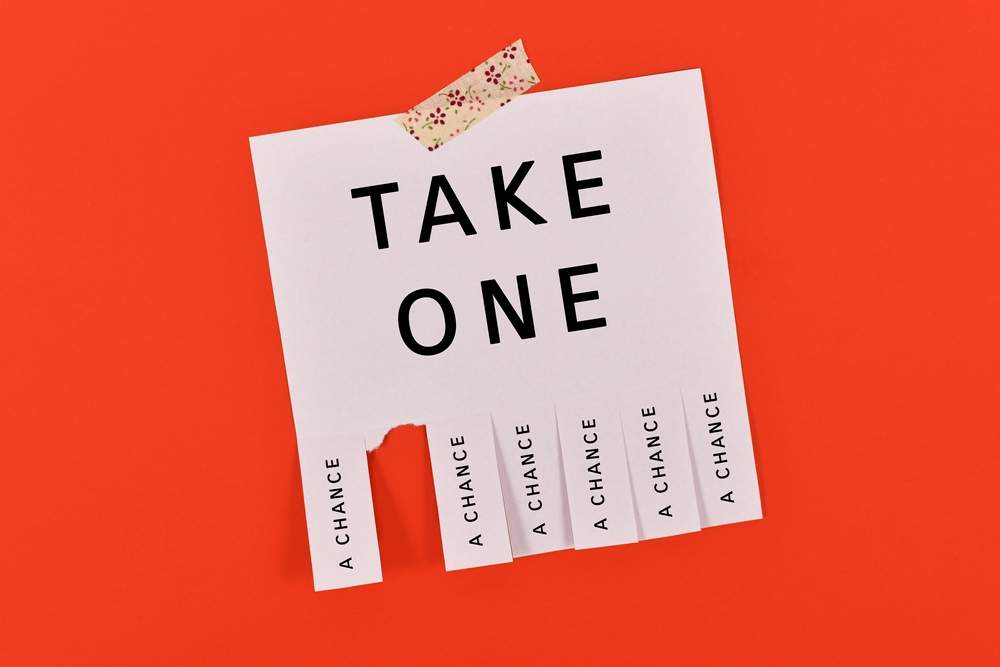Welcome back to casinotips.io! In this article, we’re going to delve into the fascinating realm of luck and explore how the power of belief influences our casino gaming experiences.
We’ll start by defining the Psychology of Luck by the difference between skill and luck as it relates to gambling and gaming. Skill is the ability to use knowledge, strategy, and tactics to influence outcomes. Luck, on the other hand, is a combination of chance and circumstance. While skill can indeed influence outcomes, luck remains an important factor in many casino games.
The power of belief is also key when it comes to our casino gaming experiences. Believing that “luck is on your side” or that “the odds are in your favor” can have a powerful positive effect on the outcome of our gambling sessions. Conversely, having a negative mindset, where you’re convinced that you won’t win can severely limit your chances of success.
At CasinoTips.io, we believe that a combination of skill, luck, and belief can result in the best casino experience possible. With a winning attitude and a bit of luck, success can be yours. So, stay positive, keep trying, and may the luck be with you!
Luck is often seen as a mysterious force, but could our mindset and psychological factors play a role in shaping our perception of luck? Join us as we uncover the intricate relationship between psychology and luck in the world of casinos.
As we examine this complex relationship between psychology and luck, we explore how psychological theory can be applied to our understanding of the gaming environment. We will look at how the gambling experience can be influenced by state of mind, and how this can be beneficial or detrimental to the outcome of your games. We will also consider the psychological importance of the idea of luck, how success and failure can be interpreted differently as a result of your mental preparedness, and how your perception of luck can affect the overall experience of gambling. Taking a deep dive into this relationship can help you unlock the potential of luck and become a better player. Through understanding our psychology, we can explore the potential of how luck and winning can be influenced in the casino.

The Psychology of Luck:
Luck is subjective, and our perception of it can greatly impact our experiences at the casino. Explore the concept of “illusion of control” and how it influences our belief in luck.
The illusion of control is a cognitive bias that is often at play in the world of gambling. It implies the false belief that an individual has knowledge or control over events that are, in fact, beyond that individual’s reach. This can lead gamblers to believe that they can influence the outcome of a game – even when it is random – by making decisions or selecting certain strategies. This can lead to irrational behavior and encourage gamblers to take excessive risks, believing it will increase their likelihood of winning. Ultimately, this reliance on luck and the belief that we can influence it can impact our overall experiences at the casino.
Discover how positive or negative experiences can shape our perception of being lucky or unlucky, and how these perceptions can affect our future gambling behavior.
Our beliefs about luck or lack thereof can play a major role in our gambling behavior moving forward. For instance, if a person has a string of good luck at a casino, they may be more likely to continue gambling in the hopes of continuing their lucky streak. Conversely, if a person experiences a string of unfavorable luck, they may be more inclined to avoid gambling in the future to prevent further losses.
Ultimately, it’s important to be mindful of the impact that our gambling experiences can have on our perception of luck and subsequent gambling behavior. It can be helpful to take a step back and evaluate whether our beliefs about luck are influencing our decisions more positively or negatively and to make conscious choices about our gambling habits accordingly.
If we find ourselves relying heavily on luck, it may be time to consult a professional or a support group, to explore underlying issues and any potentially harmful dependencies. Taking a break from gambling can also be beneficial, not only to reset our mental state but also to assess the effects of gambling on our lifestyle. Ultimately, gambling should be an enjoyable and low-risk activity, and mindful awareness can prevent us from becoming overly reliant on luck.
The Power of Positive Thinking:
Positive thinking has long been associated with success in various aspects of life, and the same principle applies to casino gaming. Investigate the phenomenon of “self-fulfilling prophecy” and how our positive mindset can influence our luck.
The self-fulfilling prophecy is a psychological concept that suggests if you believe something and act on that belief, you can create or influence the outcome of the situation. This can be applied to casino gaming with the idea that if players demonstrate a positive attitude, they are more likely to have better luck while playing.
Studies have shown that upbeat moods can lead to increased serotonin levels and a more rewarding experience while gambling. Furthermore, having a positive mindset can reduce feelings of stress, allowing players to focus more easily, and making it easier to observe the game and make sound decisions. Consequently, this can shift the odds of winning more in one’s favor.
Ultimately, positive thinking can go a long way in helping you achieve better results while gambling in a casino. Having a positive attitude, optimism, and enthusiasm can all have a real impact on your success at the gaming table.
Explore strategies to cultivate optimism, such as visualization techniques and affirmations, that can enhance our confidence and overall performance in the casino.
One of the best strategies to cultivate optimism when playing games in a casino is through visualization techniques and affirmations. Visualizing success in the casino can help to create positive self-talk and a sense of confidence, and research has shown that this type of imagery can help prime the brain for optimal performance. Additionally, using affirmations before playing a game can help to create positive expectations, reinforcing the feeling of success and confidence in the process. Engaging in both of these techniques regularly can help cultivate a sense of optimism and increase an individual’s confidence and overall performance in the casino.

The Gambler’s Fallacy:
The gambler’s fallacy is a cognitive bias that leads us to believe that past outcomes in games of chance can somehow influence future outcomes. Analyze this fallacy in detail and discuss its implications for casino gaming.
The gambler’s fallacy is based on the false premise that every chance event is independent and that the probability of the same outcome coming up again is the same for every run; this is not true. This fallacy can cause serious issues in casino gaming as it can lead gamblers to overestimate their chances of winning and make poor decisions that result in major losses. Common causes of the gambler’s fallacy in casinos include wagering larger amounts of money after a string of losses or failing to stop betting out of the belief that the odds are more in their favor in the next game. This tendency can ultimately be disastrous and can easily lead to financial ruin.
Examine the role of probability and randomness in games like roulette and coin tosses, and debunk the misconception that luck can be controlled or influenced.
Analyzing these games can be beneficial for understanding probability, as each outcome is determined by the randomness of chance. Probability can be used to determine the likelihood of certain outcomes, adding an element of strategy to games. Using the example of roulette, the placement of bets according to likely outcomes increases the chances of success. Despite this, it is important to remember that probability does not guarantee any outcome. Even when placing the correct bets, no one can be certain of the result due to the randomness of the game.
It is also important to debunk the misconception that luck can be controlled or influenced. Although emotions and superstitions may be invoked, luck is truly a random occurrence that cannot be predicted or changed. Probability can be used to analyze the outcomes of a game, and even influence some results, however, it is not a form of manipulation, nor can it control the randomness of luck.
Rather, it is important to understand that there are random factors in the world that cannot be controlled. Although it may not seem fair, having good luck or bad luck is beyond our control. Therefore, it is important to focus on the other components of a game and strategy, and how those choices can be improved upon, rather than relying on luck or superstitions to drive results.
Luck Rituals and Superstitions:
Luck rituals and superstitions are prevalent in the casino world. Delve into the psychology behind these behaviors and their impact on our perception of luck.
The most commonly accepted belief is that luck rituals can bring good fortune and help prevent bad luck. It is believed that a charm or sign of luck can activate an individual’s “lucky spot” and bring more luck to the individual. People commonly use talismans or charms such as four-leaf clovers, horseshoes, fortune cookies, and coins to increase the possibility of winning. Altogether, these rituals are seen as a guarantee of success with gambling, and this could explain why so many gamblers perform variations of luck rituals before playing.
The study of luck rituals can provide insights into how people view luck. For example, people may their rituals to invoke a feeling of control and confidence. By invoking these feelings of control, they may feel more secure in their ability to influence their luck, even though the actual outcome is uncertain. The power of luck rituals is also perceived to be greater in situations that cause anxiety, such as gambling. That is why, no matter how irrational, people may still find themselves drawn to the rituals and superstitions that form part of the casino culture.
Discuss common rituals, such as lucky charms or specific routines before playing, and explore the reasons why individuals engage in these behaviors. Highlight the placebo effect and how these rituals can create a sense of control and confidence.
Rituals provide an opportunity for individuals to ground themselves before engaging in the activity at hand. This can be beneficial if the activity carries a sense of risk or unknown outcome. Research has shown that rituals can increase focus and reduce anxiety as well as create a sense of calm and control in the moment.
The placebo effect is a phenomenon where a belief in a specific technique, ritual, or outcome can produce real and tangible results. Placebo effects reinforce these rituals by providing a direct correlation with improved performance. They can increase an individual’s belief in their abilities and make them more focused and determined.
By exploring the reasons behind why individuals engage in these common rituals, we can better understand how to tap into the power of these rituals and gain greater control of our own lives.
The Influence of Near Misses:
Near misses, where the outcome is almost favorable but falls just short, can evoke a sense of hope and keep players engaged. Investigate the psychological impact of near misses and how they affect our perception of luck.
Near misses can create a fixed mindset in players which can lead to them believing they are unlucky or can never win. This can cause players to doubt their gaming skills and turn to superstition or luck-based strategies to try and improve their luck. Research also shows that near misses can strengthen an individual’s motivation to gamble as they convince them that the outcome is close and a future win is attainable. Further studies could conduct more detailed experiments into the psychological impact of near misses and how they affect our perception of luck. Potential areas of focus could range from changes in behavior after loss versus near-miss outcomes to exploring how different variables affect near-miss occurrences.
Explore the concept of “loss chasing” and discuss strategies to avoid falling into this trap, maintaining a healthy mindset while navigating near-miss situations.
Loss chasing occurs when someone seeks to win back a loss when gambling, often continuing to gamble to recoup the cost of the original loss. Avoiding falling into this trap requires acknowledging when to stop and accept the deep-seated feeling of giving up. It requires self-discipline and self-awareness to recognize how powerful these emotions are and that the likelihood of winning back the loss is slim.
Several strategies can be employed to avoid falling into the trap of loss-chasing and maintain a healthy mindset while navigating near-miss situations. First, setting and adhering to a gambling budget is key since it keeps track of how much money is being put forth and limits the range of losses. Secondly, practicing self-control is essential, as it can help to keep a clear head, remain calm, and not exacerbate the magnitude of the loss. Third, gamblers should take breaks during play to give them a chance to reset and stick to the predetermined budget. Finally, understanding the odds and games with the highest payout ratio can also help to bridge the gap between loss and win.
Ultimately, by adopting the right strategies and habits when gambling, individuals can avoid being tempted by loss chasing, keep a healthy mindset, and better navigate near-miss situations.

Conclusion
Luck is a complex interplay of psychological factors and perception. While we can’t control luck itself, we can influence our beliefs and attitudes towards it. By understanding the psychology behind luck, we can develop a more balanced approach to casino gaming.
This can also help us to develop winning strategies and practices. When we are in control of our thoughts and feelings about luck, we can see it as a means to benefit us and increase our chances of success. When luck is seen as a positive force, we can use it as a tool to boost our chances of winning. Luck can be an unpredictable part of gaming, but with the right attitude and understanding, we can use it to our advantage and increase our chances of success.
By having the knowledge and understanding to recognize when luck might be favoring us, we can use strategies based on this to further our success. This can also help us to be proactive and find ways to increase our chances of success, through planning and strategizing. Additionally, we can also use the luck of others to our advantage by finding ways to take advantage of any luck-based opportunities that arise. Ultimately, understanding luck and how to use it to our advantage can be a powerful tool to increase our chances of success and develop winning strategies and practices.
Strategies based on luck can be used to give ourselves an edge in career opportunities, financial investments, or sports-related events. When creating plans and strategies, having the knowledge to recognize possible luck-based opportunities can help us make beneficial decisions that we may not have made before. Additionally, analyzing our losses after a setback, for example, can help us to better understand how luck factors into our lives and how to leverage it to our advantage. Finally, actively focusing on luck-based strategies can help us boost our self-confidence and stay motivated when pursuing goals or overcoming challenges.
Remember, it’s essential to enjoy the experience and embrace the element of chance while maintaining a responsible and mindful approach. Best of luck in your casino adventures!